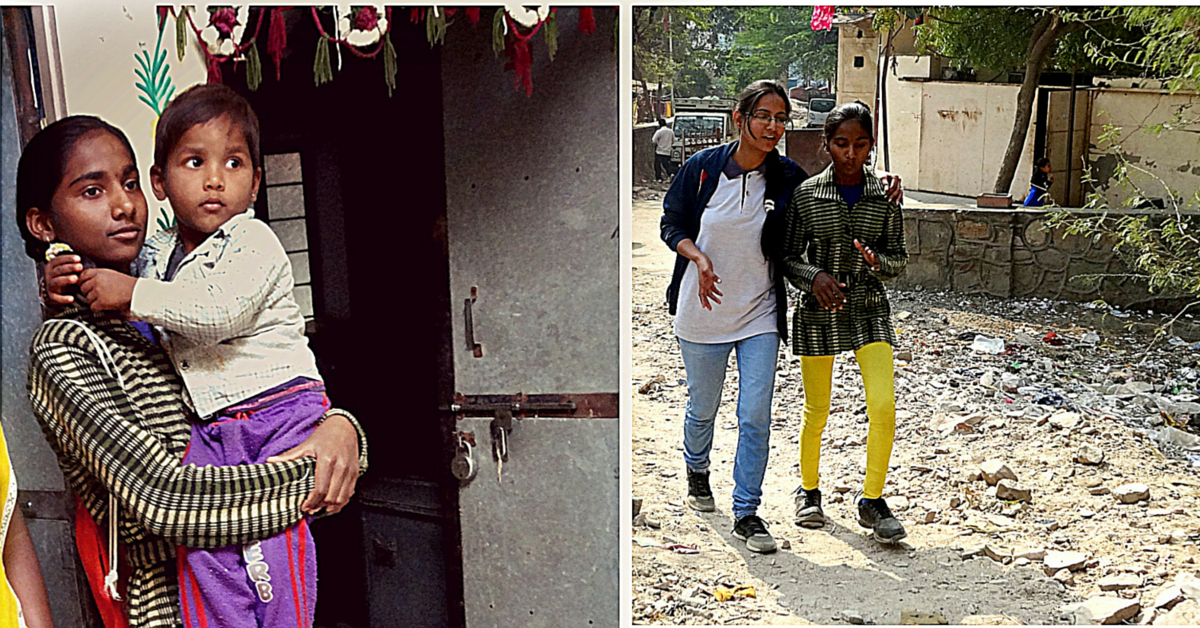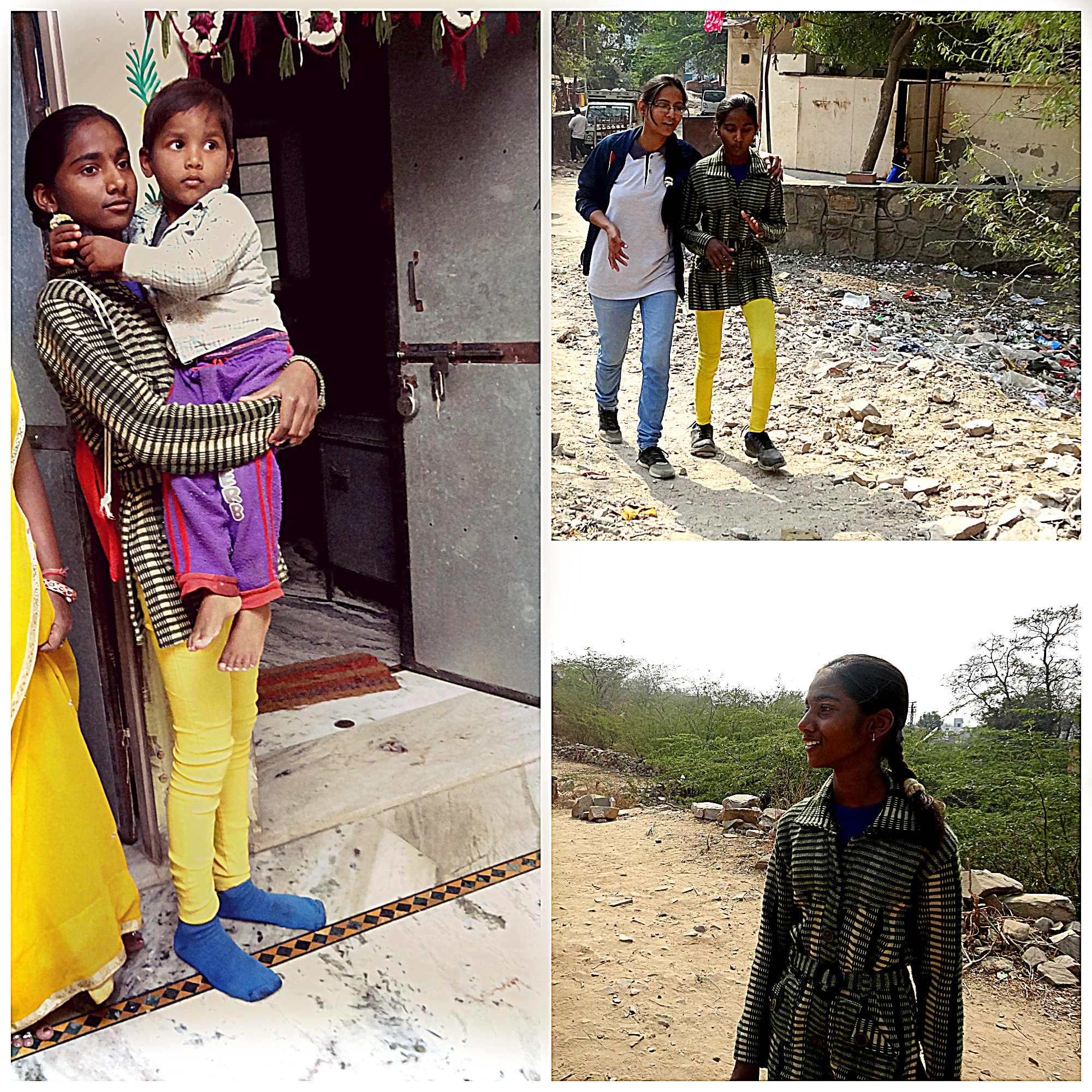TBI BLOGS: Why 12-Year-Old Divya Is a Vocal Advocate of Equal Rights for All
Young Divya is a vocal advocate of a gender-just world. The 12-year-old refuses tolerate discrimination in any form.

Young Divya is a vocal advocate for a gender-just world. The 12-year-old refuses to tolerate discrimination in any form.
Twelve-year-old Divya lives in Shanker Nagar in Jaipur. The hilly area is surrounded by historic forts like Nahargarh Fort and Amber Fort. It is also home to the Koli Mahawars, a scheduled caste (SC) community.
The earliest account of the area lacks the rich history offered by the royal forts and temples of Jaipur. Only older residents like Divya’s grandfather remember the struggle to find work during those days “when most of the area was covered by forests.” Although the area has changed considerably, the struggle to earn a livelihood continues to underwrite the lives of its dwellers.
“The forests have receded. Our houses are now made of brick instead of mud. But finding a job which brings in enough money to make ends meet is still a distant dream,” says Divya’s grandfather, pausing only to remark about the insignificance of recalling a past which is no different from the present.
Divya belongs to the same Koli Mahawar caste as the rest of the families in Shanker Nagar. Her father is a plumber and her mother is a homemaker. The family makes Rs. 5000 per month.
Divya is in the sixth standard and goes to a low-income private school. She has two brothers and lives with her extended family of uncles, aunts and cousins.
Divya’s perception of life is influenced by her parents’ constant encouragement to dream of a better future, one she can work towards achieving after completing her higher education.
“I want to be a doctor. People in my community laugh it off saying I can do no better than my father. But, I know, I will prove them wrong,” says Divya.

Divya joined Magic Bus a year ago. “People living in Shanker Nagar lack options for gainful employment. Like Divya’s father, most of the inhabitants work as unskilled labourers. Alcoholism is rampant. Initially, there was no open, safe space for us to conduct our activity-based learning sessions. The area we chose for our sessions was a little away from the community, right at the foothills,” says Neelima who is in charge of the programme in Jaipur.
Her words are echoed by Divya:
“Our community used to be unsafe for children because of the alcoholics. Once, during a session, a man approached a girl in my group and tried to ask her to ‘play’ with him behind the trees. I stood up and asked the man to back off and mind his own business. I did not feel scared of standing up to a man twice my age. Such incidents are common but we have learnt not to remain silent,” says Divya.
Divya recollects how a girl in her area was sold off by her own uncle so that he could buy alcohol. In her own life, Divya has also had to face cruel jokes because of the colour of her skin. Neighbours and other children her age believe that being dark skinned, she will have a tough time finding a groom and if she does, she will have to pay him a large dowry.
Such incidents have led her to recognise the unfair treatment meted out to girls and women. They have also helped her realise that being vocal is the only way forward: “Silence is definitely not the way out,” she says emphatically.
“Ever since I joined Magic Bus, I have become confident in my ability to make it big in this world. With my mentor’s support, I have stood up to people who tease me about my skin colour or look down on me because of my dream to become a doctor. I have decided never to discriminate and to never tolerate discrimination either,” she shares.
She feels that other children who come for the programme have changed as well, especially in the way they behave with children of the opposite sex.
The sessions have helped contribute greatly towards personality development as well as development of leadership skills among the children. “Divya is now a leader among the younger children,” shares her proud mother.
“A girl is no less than a boy. Why should she not go to school? Why should she get married?” Divya says. Her parting question tells us a lot about the young girl’s belief in a gender-equal world.
Like this story? Or have something to share? Write to us: [email protected], or connect with us on Facebook and Twitter (@thebetterindia).
This story made me
- 97
- 121
- 89
- 167
Tell Us More
We bring stories straight from the heart of India, to inspire millions and create a wave of impact. Our positive movement is growing bigger everyday, and we would love for you to join it.
Please contribute whatever you can, every little penny helps our team in bringing you more stories that support dreams and spread hope.



















